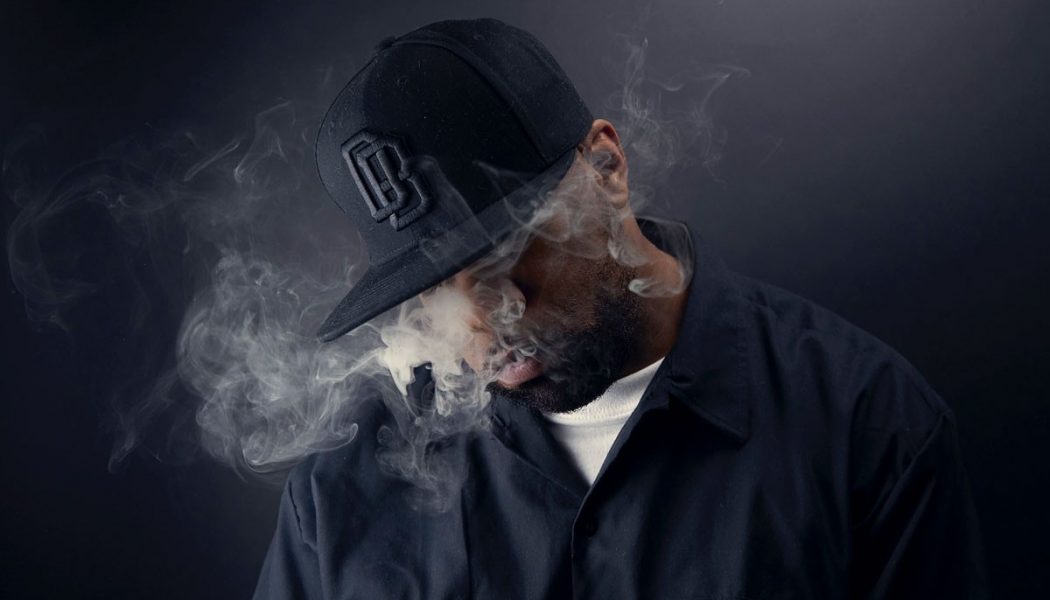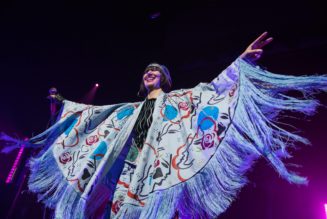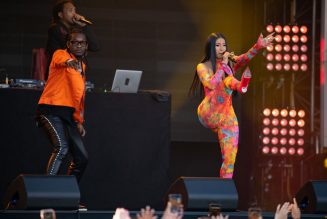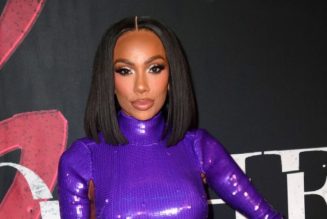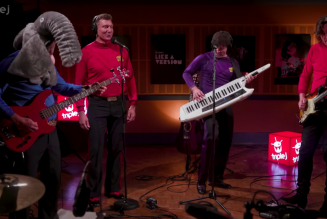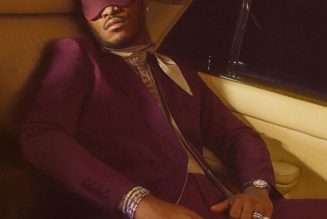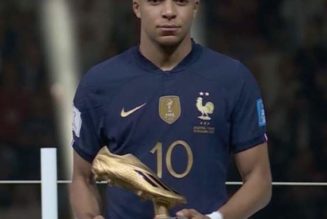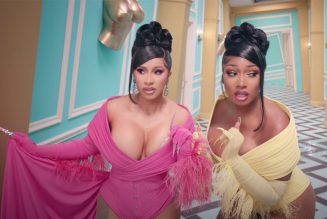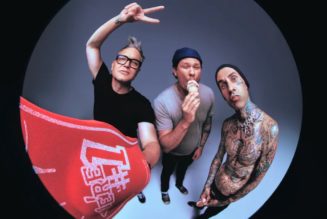
Both music and photography are natural extensions of E-Clyps’ longstanding position as an advocate for racial equality within and beyond the dance music community. Having produced music for the greater part of 10 years — and with releases on venerated labels including Ultra, Nervous, Defected and more — E-Clyps has still struggled to achieve many of the professional milestones that seemingly come easily to white producers.
He believes systemic racism within the overwhelmingly white dance music industry, and his own outspokenness about this issue, has prevented him from rising through the ranks, or even from even gaining representation. The issues he’s experienced throughout his career, he notes, are no different from those long experienced by Black producers, despite the fact that the dance genre itself was created by Black artists.
“Those I once idolized were in no position to help others,” he writes in the op-ed below for Billboard, “because they were fully engaged in a race of self-preservation themselves. There was only so much space for Black artists in our world.”
Here, E-Clyps shares his thoughts on the dance scene’s legacy of racism his own experiences with this issue.
To tell their story is to tell my story. My experiences are derivative of the unresolved issues of the past, and unless the present changes, it will also be the future.
Imagine being a young Black artist in the ghettos of Chicago and Detroit in the ’80s and ’90s creating the foundations of what would soon to be the beginning of dance music. The pulsating rhythms of beats created on drum machines serve as an escape from living in low-income areas and housing projects, which in some cases are surrounded by crack-era war zones of gang violence. Pioneers such as Gene Farris, Green Velvet, Kenny Dope, Scottie Deep, and DJ Deeon all came from these environments, and they are not alone.
Then almost as if overnight, your luck seems to change as you get calls from domestic and European label owners as well as booking agencies looking to take your creations global.
This could be the thing that changes your life.
You see the opportunity to provide for your family while possibly stopping your mother from working tirelessly to get ahead. All you have to do for this chance is sign an agreement giving them permission to press and exploit your music. However, you cannot afford a music lawyer, you have no mentors to guide you from the pitfalls, and the opportunity that lies ahead looks much better than what you see outside of your window.
Unease begins to turn into excitement as you sign your first record contract. Unfortunately, you are unaware that in exchange for your music being heard in clubs throughout the world, you have given up the rights to your masters, agreed to menial royalty percentages and entangled yourself in loopholes that would keep you in a slave relationship for decades.
This is not the makings of a screenplay, but the basis of what would become dance culture.
Unlike hip-hop, Black artists in dance culture have yet to emerge from those beginnings. We do not have Black owners of distribution, management or booking agencies or major media platforms in dance music. Dance culture has not seen the accession of artists to executive status as it has in hip-hop with the likes of Jay-Z, Dr. Dre, Diddy, etc.
In some cases Black artists who have made a major commitment to this culture, like house music pioneer Colonel Abrams, die in need of crowdfunding for a burial. One hospital visit can put artists in excessive debt, reliant on fan donations for survival. Decades after releasing records, their masters remain the property of white label owners, with any advances long depleted, leaving the highest grossing titles in their catalog out of reach and unable to be acquired.
All of this I didn’t truly understand until I became fully immersed as a DJ/producer in dance music. I recall vividly early in my career hearing all the milestones from legacy artists and executives I needed to achieve in order to gain the attention of agencies and management. But I ticked those boxes with releases on bigger labels such as Dirtybird, Defected, Nervous and Ultra, was nominated as a breakthrough producer by DJ Mag, played major events such as Dirtybird Campout, had radio support from SiriusXM, Beats 1 Radio and others, but was still stuck in the same position.
One day I was so frustrated, I asked an executive, “I’m starting to wonder… I’ve achieved the same things white artists have done in a shorter timespan, I’ve paid my dues and followed every piece of advice I was given, and yet I’m still unsigned by any agency or management… is it because I’m Black?” I’ll never forget the response. I was told, “Prior to you I would’ve said definitely not, but in this case it even has me wondering if that’s possible.”
I remember asking Claude Von Stroke and The Blessed Madonna for an introduction to a booking agency, and their immediate reply was “I really thought you were picked up by now; I had no idea.”
Finally, I was so exasperated and on the verge of walking away that I reached out for advice from a retired and respected dance music veteran. I explained every situation and everything I’d done up to this point. He informed me that after asking around, he heard directly from a top manager that the reason many chose not to work with me despite my talent was because I spoke too much about Black issues, opposed injustice against artists of color publicly on my social media, and that I needed to simply keep my mouth shut and make music … after that my luck would most likely change.
Many of my associates in the culture felt change was necessary as a whole, but were not prepared to speak on it publicly. Black artists, too, were reluctant to speak out because they knew the repercussions of doing so. My inbox would be loaded with conversations with artists saying they wholeheartedly agree, but they knew that saying these things publicly would be detrimental. Bookings would end. Labels would refuse to work with them … All of which and more I have faced more times than anyone should have to admit. I questioned a label once about unpaid royalties, and rather than attempt to resolve them, they had the entire staff block my email to no longer hear from me.
I’ve had threatening phone calls from label heads in which it seemed they thought sounding intimidating would deter me, only find out that I would be totally up for the challenge of a brawl. I told them to pick an alley and the time. Subsequently, it alarmed them that I wanted the smoke. I knew most of the time I would be on my own speaking about unfairness in the industry, about Black issues, about protests that were arising in Ferguson or Baltimore, or about how unfairly the scales were tilted in terms of Black artists getting treated equally.
Years before the George Floyd protests, I once removed my entire catalog in protest from a music outlet until they would feature more DJs of color — that didn’t work. I was one of thousands of labels, so they didn’t care enough to even consider it.
Many Black artists would agree in secret, and be silent in public, and I had to come to terms with either standing on my own, or fall in line with the others. It was either to quit music or accept the consequences of saying what most were unwilling to. I came to the conclusion that the only way I could stay in dance culture was to remain true to myself regardless of the consequences. I couldn’t act as if these things weren’t happening. My career wasn’t as important as the overall progress of Black lives and the betterment of Black and POC artists as a whole.
I had to also understand that many Black pioneering artists were not stifling us, the newer generation, out of spite, but often out of desperation. Those I once idolized were in no position to help others because they were fully engaged in a race of self-preservation themselves. There was only so much space for Black artists in our world. They could not mentor from a powerless place, and despite long careers, the power they had access to was the white executives that owned their catalogs or oversaw their bookings with an unrelenting grip. They could simply not afford to place another Black artist into the spotlight as it could diminish their own chances of making a living from an industry they had invested their lives into.
I would like to believe that white executives are not necessarily racist in nature and intent, but perhaps the greed of colonizing another genre of Black music became more important than keeping true to the founding principles of the culture. Maybe the slogans and “PLUR” (peace, love, unity, respect) sentiments that have long echoed through our industry convinced them that all was equal and these were not simply empty catchphrases. Decades of letting the music do the talking has not proven to be a successful strategy for Black artists, the only way to make a change was for me to be vocal.
In the aftermath of the protests this summer, more Black artists are speaking out, because to encounter injustice in every facet of life has become something we can’t keep accepting as standard operating procedure. Change cannot just be issued in well-crafted statements, but also echoed in lasting actions that create a new cycle.
As a photographer during the protests over the murder of George Floyd, Breonna Taylor, and the countless victims of police brutality, my goal in every photo was to give protesters a voice — a voice that would last past the moment. Most will not get the opportunity to be interviewed, write an op-ed such as this, and likely will never be heard outside of the moments they stand in the streets crying out for justice.
As a Black artist in dance music culture, my experience is not much different. Part of saying “Black Lives Matter” is to also acknowledge that their creations and contributions matter. Their ability to own their creations matter. To have a seat at the table rather than hoping you’re heard yelling up at the skyscraper window matters. It is more than posting a black square on Tuesday and back to business as usual on Wednesday, as if it never happened. It is more than booking your one token Black friend and calling it progress.
Change is real change. If you sign a hundred Black artists to a label, but they still have no access to management, agencies, media, or positioning in key music outlets, all you have done is plugged a hole and left the others untreated, still draining the waters of hope from their souls.
If we, the dance music community, are truly a culture of Peace, Love, Unity and Respect, then let all of us feel that it rings true.
